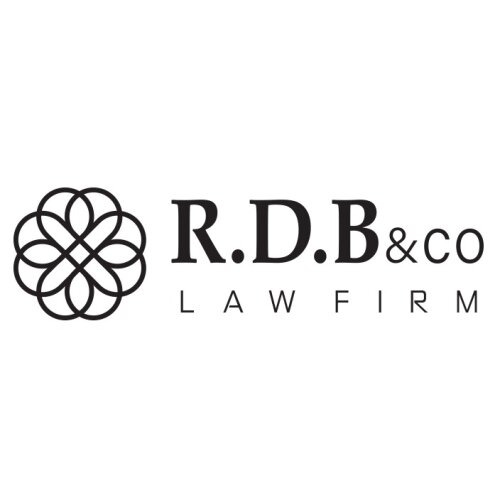Best Employer Lawyers in Petaẖ Tiqwa
Share your needs with us, get contacted by law firms.
Free. Takes 2 min.
List of the best lawyers in Petaẖ Tiqwa, Israel
About Employer Law in Petaẖ Tiqwa, Israel
Employer law in Petaẖ Tiqwa, Israel, encompasses a variety of legal obligations and rights between employers and employees. This includes matters related to employment contracts, workplace conditions, wages, benefits, termination procedures, and more. Understanding employer law is crucial for both employers wanting to maintain legal compliance and employees seeking to protect their rights in the workplace.
Why You May Need a Lawyer
There are several situations where seeking legal advice in employer law might be necessary. These circumstances can include, but are not limited to:
- Disputes over employment contracts and agreements
- Issues concerning wrongful termination or unfair dismissal
- Discrimination or harassment claims in the workplace
- Questions regarding employee benefits, wages, and overtime pay
- Legal compliance with labor laws and regulations
- Negotiation of severance packages or settlement agreements
- Worker compensation claims following workplace injuries
These scenarios highlight the importance of having a knowledgeable lawyer to navigate complex legal landscapes and protect your interests.
Local Laws Overview
Key aspects of local laws in Petaẖ Tiqwa related to employer-employee relationships include:
- Employment Contracts: Legal provisions mandate written employment contracts covering terms of employment, job duties, compensation, and benefits.
- Employment Termination: Employers must adhere to strict guidelines and justifications for terminating employees, including providing proper notice and severance pay.
- Work Hours and Overtime: Laws regulate maximum working hours, minimum rest periods, and compensation for overtime work.
- Minimum Wage: Employers must pay at least the minimum wage as determined by law.
- Anti-discrimination: There are stringent laws prohibiting discrimination based on race, gender, religion, age, and other factors.
- Workplace Safety: Employers are required to provide safe working environments and comply with occupational health and safety regulations.
- Collective Agreements: These agreements between employer groups and trade unions play a significant role in regulating employment conditions.
Frequently Asked Questions
What should be included in an employment contract in Petaẖ Tiqwa?
An employment contract should include job title, duties, duration (if applicable), wage information, working hours, holidays, and notice periods for termination. It should comply with all relevant local laws.
Can my employer terminate my contract without notice?
Under most circumstances, employers must provide notice before terminating a contract. However, immediate termination may be justified for serious misconduct.
What are my rights if I'm being discriminated against at work?
You have the right to a workplace free from discrimination. If you face discrimination, you can file a complaint with relevant authorities or seek legal advice.
How is minimum wage determined?
Minimum wage is set by national legislation and must be adhered to by employers. It is periodically updated based on economic conditions.
What is considered overtime, and how should it be compensated?
Overtime is any work performed beyond the regular working hours. It should be compensated at a higher rate specified by law or employment agreement.
Do I have a right to paid leave?
Yes, employees are entitled to annual paid leave, sick leave, and other types of leave as specified by law.
How can I ensure my workplace is safe?
Employers are legally obligated to maintain a safe working environment. Employees should report unsafe conditions to their employer or appropriate regulatory body.
What steps should I take if I'm wrongfully terminated?
If you believe you've been wrongfully terminated, gather all relevant documentation and seek legal advice to understand your options for contesting the termination.
Can my employer change the terms of my employment contract?
Changes to employment contracts generally require mutual consent. Unilateral changes by the employer should be reviewed for legal compliance.
How do collective agreements affect my employment terms?
Collective agreements between trade unions and employer groups can set industry-wide standards for working conditions, wages, and other employment terms.
Additional Resources
Several resources can provide valuable information and assistance regarding employer law:
- Ministry of Labor, Social Affairs and Social Services
- Histadrut (General Federation of Labor in Israel)
- Local labor law firms specialized in employer law
- Workers’ rights organizations and advocacy groups
Next Steps
If you need legal assistance in employer law, consider taking the following steps:
- Identify and document your specific legal issues
- Gather and organize any relevant documents and evidence
- Research and contact a local lawyer specialized in employer law
- Schedule a consultation to discuss your case and obtain professional advice
- Follow your lawyer’s guidance to resolve your legal matters effectively
By understanding your rights and seeking appropriate legal assistance, you can navigate employer law matters more confidently and successfully.
Lawzana helps you find the best lawyers and law firms in Petaẖ Tiqwa through a curated and pre-screened list of qualified legal professionals. Our platform offers rankings and detailed profiles of attorneys and law firms, allowing you to compare based on practice areas, including Employer, experience, and client feedback.
Each profile includes a description of the firm's areas of practice, client reviews, team members and partners, year of establishment, spoken languages, office locations, contact information, social media presence, and any published articles or resources. Most firms on our platform speak English and are experienced in both local and international legal matters.
Get a quote from top-rated law firms in Petaẖ Tiqwa, Israel — quickly, securely, and without unnecessary hassle.
Disclaimer:
The information provided on this page is for general informational purposes only and does not constitute legal advice. While we strive to ensure the accuracy and relevance of the content, legal information may change over time, and interpretations of the law can vary. You should always consult with a qualified legal professional for advice specific to your situation.
We disclaim all liability for actions taken or not taken based on the content of this page. If you believe any information is incorrect or outdated, please contact us, and we will review and update it where appropriate.









